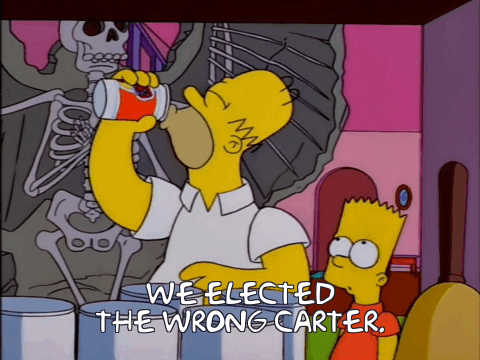1856 United States presidential election
The
1856 United States presidential election was the 18th quadrennial presidential election, held on Tuesday, November 4, 1856. In a four-way contest, no single candidate for president or vice president won a majority of the electoral college leading to the first presidential and vice presidential contingent election since the
1828 election. The House and Senate selected the W
ar Democratic faction candidates
Joseph Lane and
John Slidell for president and vice president respectively, despite their ticket not being on the ballot in most Northern states and only receiving 20% of the national popular vote. Lane and Slidell's election was one of the main catalysts of the
American Civil War.
The United States had become increasingly sectionally divided during the 1850s, primarily over the issue of slavery and westward expansion in the recently independent
Louisiana Republic, especially after the
1854 Pointe Coupee Slave Rebellion spread into the neighboring states of Mississippi and West Florida. The incumbent Democratic president,
Stephen Douglas, opposed annexation of Louisiana, but ordered federal troops into Louisiana to
violently quell the rebellion and continued to occupy some of the country.
From the mid-1850s, the anti-slavery
New Republican Party became a major political force, driven by Northern voter opposition to the continued Caribbean expansion and the invasion of Louisiana. From the 1854 midterms, the New Republican Party had replaced the Whig Party as the major opposition to the Democrats.
Though Douglas was the incumbent Democratic president, the
1856 Democratic National Convention adjourned in Cincinnati, without agreeing on a nominee. The pro-slavery, pro-expansion War Democratic faction of the party formed after the 1854 midterms and refused to support Douglas. The
Peace Democratic faction on the other hand was mostly dominated by anti-slavery anti-expansion
Free Soilers. The two factions failed to coalesce with a nominee at the Convention and instead each nominated their own. The War Democrats selected Indiana Senator Joseph Lane and West Florida senator John Slidell as president and vice president respectively with both being radically pro-slavery and pro-expansion. The Peace Democrats nominated Douglas for reelection even though he previously did not support either faction with William Butler of Kentucky as his running mate. The
1856 Republican National Convention in Philidelphia nominated Speaker of the House of Representatives,
Nathaniel P. Banks, from Massachusetts for president and former representative
Abraham Lincoln of Illinois for vice president. Its platform promised not to interfere with slavery in the South but opposed US expansion into Louisiana and the Caribbean. The
Whig Party, still reeling from their losses in 1852 and 1854, nominated a ticket led by former president
Millard Fillmore with representative
Alexander Stephens as his running mate.
Banks won a plurality of both the electoral and popular vote, but came 38 electoral votes of achieving the needed majority. His support was relegated to the North especially his native New England and the Northwest. In the South, Lane won most of the South, all of the Caribbean slave states, and crucially, his home state of Indiana. Fillmore won Maryland and his home state of New York, winning just one more electoral vote than Douglas to edge him out for third place. Even though Douglas was Banks's main opponent in the North, he failed to win any northern state except for New Jersey. He also won the border states of Kentucky and Virginia as well as Yucatan.
With no candidate winning a majority of the electoral vote, contingent elections were held in 1857 as stated by the 12th amendment. In the presidential contingent election, Fillmore supporters attempted to maneuver him as a compromise choice between Lane and Banks, but this failed and he only received support of the Maryland delegation. Lane won a majority of state delegations sweeping every slave state except Maryland and winning the free states of Indiana and Yucatan. Banks won the rest of the northern delegations. In the vice presidential contingent election, the majority Democratic Senate selected Slidell over Lincoln. This election marked the end of the
Second Party System and the last time that a member of the Democratic Party was elected president.





